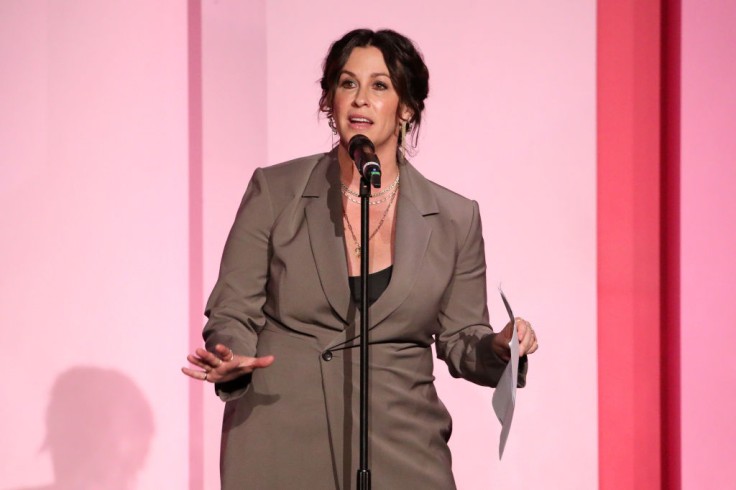
Since becoming a mother, Canadian singer and hitmaker, Alanis Morissette has been open about her battle with postpartum depression. She recently revealed that she just recovered from a two-year struggle after her last baby.
In an interview with Today Parents, Morissette revealed that she had postpartum depression for each of her three pregnancies which got "progressively worse" with every baby. The mother of three said that her last struggle was over only three months ago, and she's finally happy to be "on the other side" of this emotional roller coaster.
Morissette said that her postpartum depression picked up after Winter, her youngest child, decided that she no longer wanted to breastfeed. The singer said that she didn't force her daughter to stop, which slowly helped her get out of the fix.
The "Ironic" singer also said that most people do not understand postpartum depression as they advised her to get some sleep or go for a walk to handle her mood.
"But news flash: It's so multilayered," Morissette said, adding that postpartum is biochemical, neurochemical, circumstantial, environmental, which can't be fixed so easily.
There Are Trainwreck Moments
The award-winning singer said that her husband, Mario Treadway, has been such a superhero in their 11 years of marriage because she had "trainwreck moments" with postpartum depression. In 2019, after Winter arrived, she wrote a lengthy message on her website about her struggles and said that she spoke to a professional who told her that it could worsen with every birth.
Morissette said that one of her lifesaving graces was a medication prescribed by her doctor. She said she does not regret taking a depression pill as it has helped her feel like her old self again.
According to the experts, mothers who experience postpartum depression risk having a strained mother-child relationship, especially in severe cases. It could impact the baby's development. About 1 in 8 women suffer from this condition in the U.S., and the symptoms vary with every mother.
Some mothers delay getting treatment because they don't know if this will impact their baby's health if they are breastfeeding. However, there are safe depression medications that feeding moms can take to deal with their experiences as they continue to nurse their children. The most important thing is for mothers to open up to their doctor or a healthcare worker about needing help.
Why Postpartum Depression Happens
Dr. Jennifer Ashton told Good Morning America that a mother's hormone level drops after giving birth, affecting the brain's neurotransmitters that control her moods. Doctors of obstetrics and gynecology believe that mood disorders can begin before and during pregnancy.
Ashton said that the key to helping moms is giving medication, therapy, and support from family and friends. Mothers may also be informed of what can possibly happen if they experience postpartum depression, as doctors believe this can help reduce their anxieties and struggles.
In 2011, after her first child, Morissette said that no one told her about postpartum depression. She admitted that she wasn't prepared when her first baby came.